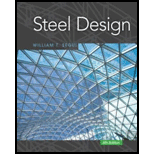
Steel Design (Activate Learning with these NEW titles from Engineering!)
6th Edition
ISBN: 9781337094740
Author: Segui, William T.
Publisher: Cengage Learning
expand_more
expand_more
format_list_bulleted
Concept explainers
Question
Chapter 9, Problem 9.7.3P
To determine
The flexural strength of the composite section.
Expert Solution & Answer
Trending nowThis is a popular solution!

Students have asked these similar questions
handwritten. pls provide instructions
2: Determine the vertical displacement, in millimeters, at H for the following truss. Assume A
= 400 mm2 and E = 200,000 MPa for each member.
A
5 kN
B
5 kN
5 kN
D
I
H
G
2 m
2 m
2 m
2 m
1.0 m
1.0 m
E
1: Determine the vertical deflection at joint E and the horizontal displacement at joint C for
the following truss. Assume Area = 400 mm2 and E = 200000 MPa
30 m
B
с
30 kN
A
E
D
25, KN
-5 m-
-5 m-
-5 m-
-5 m-
-20 m-
Chapter 9 Solutions
Steel Design (Activate Learning with these NEW titles from Engineering!)
Ch. 9 - Prob. 9.1.1PCh. 9 - Prob. 9.1.2PCh. 9 - Prob. 9.1.3PCh. 9 - Prob. 9.1.4PCh. 9 - Prob. 9.1.5PCh. 9 - Prob. 9.1.6PCh. 9 - A W1422 acts compositely with a 4-inch-thick floor...Ch. 9 - Prob. 9.2.2PCh. 9 - Prob. 9.3.1PCh. 9 - Prob. 9.3.2P
Ch. 9 - Prob. 9.4.1PCh. 9 - Prob. 9.4.2PCh. 9 - Prob. 9.4.3PCh. 9 - Prob. 9.4.4PCh. 9 - Prob. 9.4.5PCh. 9 - Prob. 9.5.1PCh. 9 - Prob. 9.5.2PCh. 9 - Prob. 9.5.3PCh. 9 - Note For Problems 9.6-1 through 9.6-5, use the...Ch. 9 - Note For Problems 9.6-1 through 9.6-5, use the...Ch. 9 - Note For Problems 9.6-1 through 9.6-5, use the...Ch. 9 - Note For Problems 9.6-1 through 9.6-5, use the...Ch. 9 - Note For Problems 9.6-1 through 9.6-5, use the...Ch. 9 - Prob. 9.7.1PCh. 9 - Prob. 9.7.2PCh. 9 - Prob. 9.7.3PCh. 9 - Prob. 9.7.4PCh. 9 - Prob. 9.8.1PCh. 9 - Prob. 9.8.2PCh. 9 - A beam must be designed to the following...Ch. 9 - Prob. 9.8.4PCh. 9 - Prob. 9.8.5PCh. 9 - Prob. 9.8.6PCh. 9 - Prob. 9.8.7PCh. 9 - Prob. 9.8.8PCh. 9 - Use the composite beam tables and select a W-shape...Ch. 9 - Prob. 9.8.10PCh. 9 - Prob. 9.10.1PCh. 9 - Prob. 9.10.2P
Knowledge Booster
Learn more about
Need a deep-dive on the concept behind this application? Look no further. Learn more about this topic, civil-engineering and related others by exploring similar questions and additional content below.Similar questions
- A cantilever beam ABC is loaded as shown in Figure 1. A is a fixed support. Assume E= 200 GPa and I = 200 x 10^6 mm^4. (a) Using the moment area method, determine the slope at B. (b) Using the conjugate beam method, determine the vertical deflection at B. (c) Using the virtual work method, determine the vertical deflection at C.arrow_forwardCompute for the stresses (initial, const and final stage) and check for compliance in NSCP provisions. Also compute the following: 1. Compute and check if the section is Uncracked, Transition or Cracked as per NSCP. 2. Compute for its flexural capacity and check if it could carry the given load. BEAM SECTION NOT TO SCALE 1400mm 300 $1098 400 */ 400*300* 300 200 300 100 ORIGINAL SECTION/PRECA CAST-IN-PLACE (CIP) PART PRECAST LOADING AT SERVICE M • 21 KN (DEAD LOAD ONLY) 21KN 4.75m 9.25m CIVEN DATA STRANDS: 12-02 AT 120KN/STRAND (GOMM FROM BOTTOM) 8-2 AT 120HN/STRAND (120mm FROM BOTTOM) fc 42.5 MPa (BEAM) fc 38 MPa (CIP) f'a = 80% or fa fp-1860 MPa ESTRANDS 1976Pa OONG 23.6/m³ LOES 1-8% Loss 18% APPLY 3M LIVE LOAD AT CONST. PHASEarrow_forwardPlease explain all your steps. Thank you.arrow_forward
- 10000 Quizl:Design a grit chamber for a horizontal velocity 250 mm/s, minimum flow 5,000 m³/day, maximum 20,000 m³/day, average flow is 12,500m³/day, S.O.R= 0.017 m/s, For a parabolic channels A =2/3 WD, detention time = 1 min Q Ac == HxW vs for inorganic particles = SOR As = LxW As V=Qxt=LxWxH Z=CxW2 Q (m³/day) | Ac (m²) W (m) | Z (m)arrow_forwardCan you please explain how to draw the shear and moment diagrams. Thank you.arrow_forwardQ2: Design an activated sludge process to treat a waste flow of 15000 m³/day with a BODs of 180 mg/L following primary treatment. The effluent BOD, and SS are to be 20 m mg/L. Assume Xr = 15000 mg/L, X = 2500 mg/L, 0c = 10 day, Y = 0.60, kd=0.05. Determine 1- the reactor volume, 2- the Sludge production rate, 3- the circulation rate, 4- the hydraulic retention time, and 5- the oxygen required? C₁-Ce C 1 XV = 1 +0.532 QxC₁₂ VXF F= - 1+r (1+0.1r)² = Qr= dt Өс Qx Xr-X V R = [= Q YQ(So-S) Oc dx XV 1+Kd0c O₂demand =1.47 (So-S)Q-[1.14Xr(Qw)] Qw total sludge production/X, S = BOD, effluent - 0.63 * SS Warrow_forward
- مارت حولة ملانول 60 Design Deceleration tank and screen for W.W.T.P of flow-144000 m² day Design Data: D.T=1-3 min 1-3b, d=1-1.5 m 60 Design Data: velocity= 0.6: 1.5 m/sec . A-Qdfv=b.d, b=2d 233 Design Data: bars used circular of p= 1.5:3 cm. rec. of (1:2 cm) x (2:6 cm) spacing between bars 2.5:5.0 cm fine screen, 2.5 7.5 cm coarse screen Sloping angle on hz (6)=45:60 = depth of water depth in approaching channel=d = ⚫nbars nspacings +1 ⚫b=nbars xo+nspacings I spacing net inclined area = 2 Aapproach channel=nspacing. spacing. L. 1=d/ sin Check: = 1.13 C 2.56 1134(6.05 P. 45.30 *velocity just befor the screen=v₁ = Qa(m³/sec) screen-b.d ≥ 0.6 m/sec. * velocity through the screen=v2 16mm use 2 Qa(m³/sec) nscreens (spacings Spacing).d ≤1.5 m/sec IsP. 22-65 12²² head losses = Ah = 1.4 x ≤0.1 m 2g bav usp = Ubar Q 23.65 k 148.72arrow_forwardCan you please explain the steps of this problem especially the variables for Q when solving for the shear force? Thanks.arrow_forwardPlease show all your steps. Thank you.arrow_forward
- The solution to this problem is 10.5kip. Please explain all the steps.arrow_forwardQ1: Design of trickling filter system single-stage with 3m depth, effluent BOD, of 20 mg/l, influent BODs =250mg/l, flow = 2.63 m³/min and hydraulic flow rate or hydraulic loading rate 25 m/day, r=3arrow_forward04 Q4 A waste effluent of 1.25 m/s with BOD, 183 mg/L, DO=0 mg/L and T = 20 °C is to be discharged into a river of 8 m³/s flow, BOD, = 2mg/L, DO -9.14 mg/L and T= 15 °C. At 20 °C, (K₁) is 0.3/day and (K2) is 0.9/day. The average velocity of the river is 0.8 m/s. 1) Is DO min within the environmental limitations? 2) At what distance is the maximum deficit located. 3) Draw the oxygen sag curve? Given the saturation concentration at 15 °C and at mixed temperature = 10.15 mg/Larrow_forward
arrow_back_ios
SEE MORE QUESTIONS
arrow_forward_ios
Recommended textbooks for you
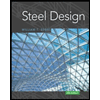 Steel Design (Activate Learning with these NEW ti...Civil EngineeringISBN:9781337094740Author:Segui, William T.Publisher:Cengage Learning
Steel Design (Activate Learning with these NEW ti...Civil EngineeringISBN:9781337094740Author:Segui, William T.Publisher:Cengage Learning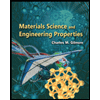 Materials Science And Engineering PropertiesCivil EngineeringISBN:9781111988609Author:Charles GilmorePublisher:Cengage Learning
Materials Science And Engineering PropertiesCivil EngineeringISBN:9781111988609Author:Charles GilmorePublisher:Cengage Learning Architectural Drafting and Design (MindTap Course...Civil EngineeringISBN:9781285165738Author:Alan Jefferis, David A. Madsen, David P. MadsenPublisher:Cengage Learning
Architectural Drafting and Design (MindTap Course...Civil EngineeringISBN:9781285165738Author:Alan Jefferis, David A. Madsen, David P. MadsenPublisher:Cengage Learning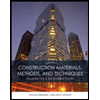 Construction Materials, Methods and Techniques (M...Civil EngineeringISBN:9781305086272Author:William P. Spence, Eva KultermannPublisher:Cengage Learning
Construction Materials, Methods and Techniques (M...Civil EngineeringISBN:9781305086272Author:William P. Spence, Eva KultermannPublisher:Cengage Learning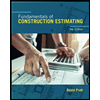 Fundamentals Of Construction EstimatingCivil EngineeringISBN:9781337399395Author:Pratt, David J.Publisher:Cengage,
Fundamentals Of Construction EstimatingCivil EngineeringISBN:9781337399395Author:Pratt, David J.Publisher:Cengage,

Steel Design (Activate Learning with these NEW ti...
Civil Engineering
ISBN:9781337094740
Author:Segui, William T.
Publisher:Cengage Learning

Materials Science And Engineering Properties
Civil Engineering
ISBN:9781111988609
Author:Charles Gilmore
Publisher:Cengage Learning

Architectural Drafting and Design (MindTap Course...
Civil Engineering
ISBN:9781285165738
Author:Alan Jefferis, David A. Madsen, David P. Madsen
Publisher:Cengage Learning

Construction Materials, Methods and Techniques (M...
Civil Engineering
ISBN:9781305086272
Author:William P. Spence, Eva Kultermann
Publisher:Cengage Learning

Fundamentals Of Construction Estimating
Civil Engineering
ISBN:9781337399395
Author:Pratt, David J.
Publisher:Cengage,